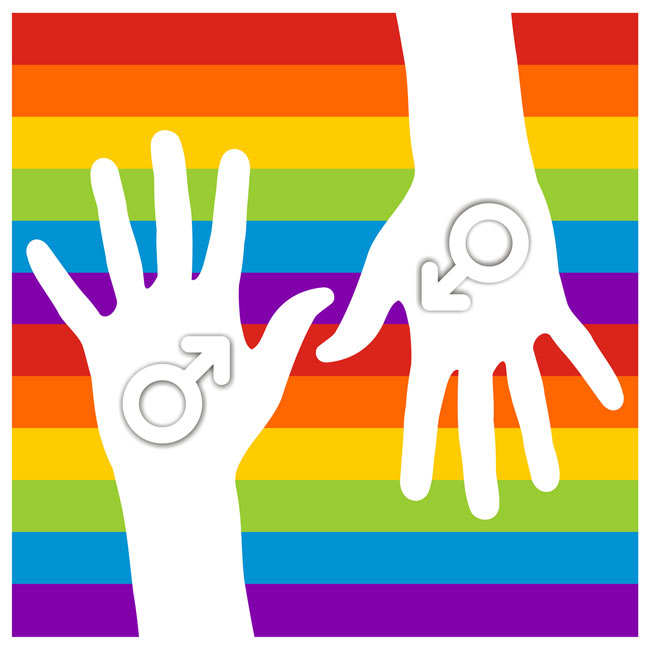Accepting Parents Boost Mental Health of LGBT Teens

Parents who accept and advocate for their non-heterosexual teens may be protecting them from depression and ill health as adults, suggests a new study on families with lesbian, gay, bisexual and transgender (LGBT) children.
Specific parental behaviors, such as advocating for their children when they are mistreated due to their LGBT identity and supporting their teen's gender expression, were linked to a lower likelihood of depression, substance abuse, suicidal thoughts and suicide attempts in early adulthood, the researchers detail in the November issue of the Journal of Child and Adolescent Psychiatric Nursing.
Extra support for LGBT teens may be warranted. Another study reported today (Dec. 6), this one in the January 2011 issue of the journal Pediatrics, suggests that LGB teens are more likely to be mistreated in the form of punishment from school authorities, police and the courts. Past research has also shown lesbian and gay teens are more likely to be bullied than their peers.
Rather than highlight the negative repercussions that some LGBT youth suffer, the findings "offer a gateway to hope for LGBT youth and families that struggle with how to balance deeply held religious and personal values with love for their LGBT children," said study researcher Dr. Caitlin Ryan, director of the Family Acceptance Project at San Francisco State University.
Ryan and colleagues analyzed data collected from 245 white and Latino LGBT young adults, ages 21 to 25, who were open about their sexual orientation to at least one parent or primary caregiver during adolescence. Participants rated how often they had experienced each of 55 positive behaviors from parents on a scale from never to many times.
Statements included:
- How often did any of your parents/caregivers talk openly about your sexual orientation?
- How often were your openly LGBT friends invited to join family activities?
- How often did any of your parents/caregivers bring you to an LGBT youth organization or event?
- How often did any of your parents/caregivers appreciate your clothing or hairstyle, even though it might not have been typical for your gender?
From the results, the participants were split into low, moderate and high acceptance groups. Results showed that LGBT youth with highly accepting families have much higher levels of self-esteem and social support in young adulthood.
Sign up for the Live Science daily newsletter now
Get the world’s most fascinating discoveries delivered straight to your inbox.
Half as many participants from highly accepting families reported suicidal thoughts in the past six months compared with those who reported low acceptance (18.5 percent versus 38.3 percent). While nearly 31 percent of the high-acceptance group reported suicide attempts, nearly 57 percent of the low-acceptance indicated the same.
Participants who had low family acceptance as teens were more than three times as likely to report both suicidal thoughts and suicide attempts compared with those who reported high levels of family acceptance.
In addition, families in that study that showed high religious involvement were more likely to have low acceptance of LGBT children. There was no link found between family acceptance and participants' risky sexual behaviors over the prior six months.
The researchers note that since LGBT individuals are a somewhat hidden population, they can't say whether their sample would be representative of the general population. In addition, further research should include more ethnic diversity to determine any cultural differences in family reactions to their children's LGBT identities.
"More and more families want to be accepting of their children. Yet, many families still struggle when a child comes out as LGBT," said Stephen Russell, president-elect of the Society for Research on Adolescence and a consultant to the Family Acceptance Project. "It's essential to have research like this to deeply understand the ways that families show their acceptance, so that we can identify how to support families."
According to the Project, supportive behaviors include: expressing affection when your child tells you or when you learn that your child is gay or transgender; requiring that other family members respect your LGBT child; supporting your child's LGBT identity even though you may feel uncomfortable; welcoming your child's LGBT friends and partners to your home; and supporting your child's gender expression.
- 5 Myths About Gay People Debunked
- High Suicide Risk, Prejudice Plague Transgender People
- Top 10 Controversial Psychiatric Disorders
Jeanna Bryner is managing editor of Scientific American. Previously she was editor in chief of Live Science and, prior to that, an editor at Scholastic's Science World magazine. Bryner has an English degree from Salisbury University, a master's degree in biogeochemistry and environmental sciences from the University of Maryland and a graduate science journalism degree from New York University. She has worked as a biologist in Florida, where she monitored wetlands and did field surveys for endangered species, including the gorgeous Florida Scrub Jay. She also received an ocean sciences journalism fellowship from the Woods Hole Oceanographic Institution. She is a firm believer that science is for everyone and that just about everything can be viewed through the lens of science.










